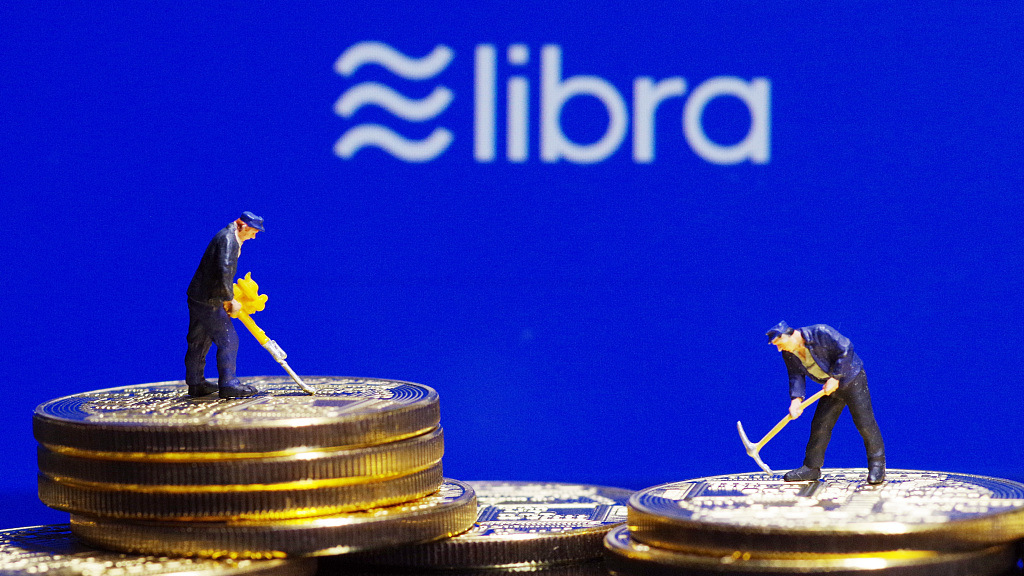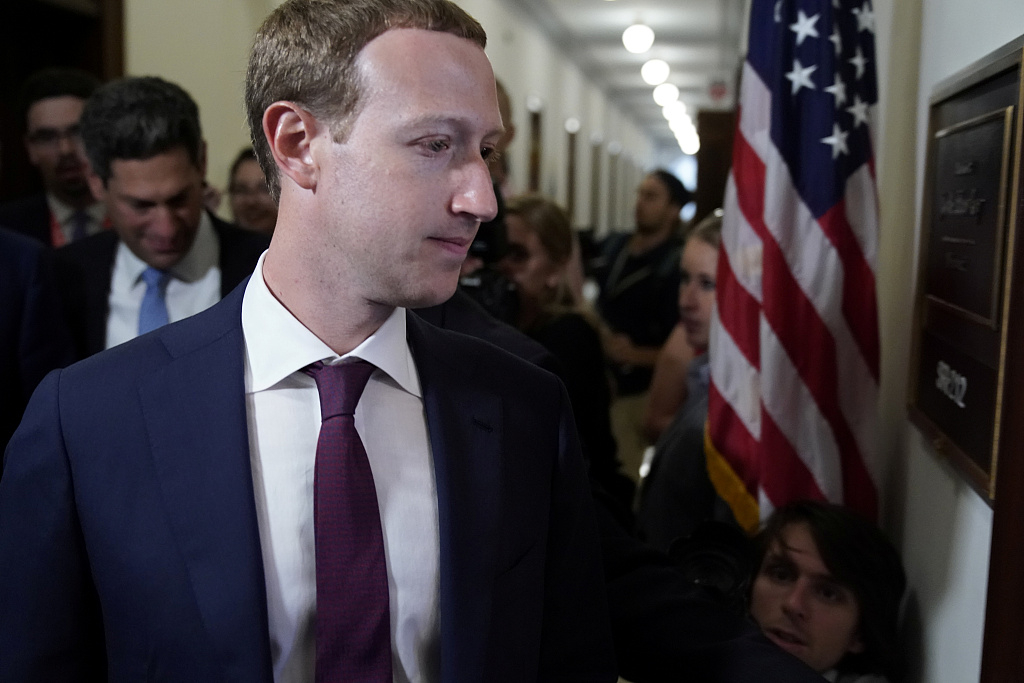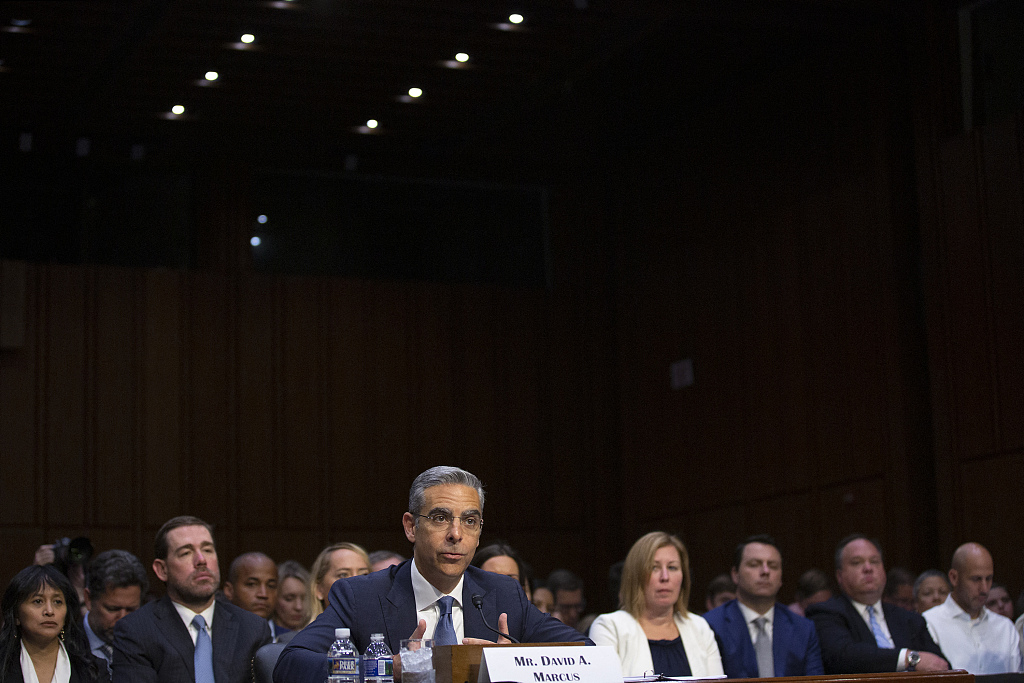
Facebook's cryptocurrency Libra. /VCG Photo
Facebook's cryptocurrency Libra. /VCG Photo
Editor's note: David Lee is a consultant and author based in Beijing who focuses on energy, health, international politics and international development. The article reflects the author's opinion and not necessarily the views of CGTN.
The long-awaited Congress testimony by Mark Zuckerberg on Facebook's cryptocurrency Libra takes place on Thursday. The hearing takes place at an increasingly difficult time for Libra, following previous announcements by high-profile actors such as PayPal, Visa and Mastercard to quit the Libra Association, a non-profit organization established to oversee the Libra currency.
Even if key allies' parting ways doesn't necessarily point to any imminent disintegration of the Libra Association, signs are clear that business confidence is hurt in face of stern regulatory warnings. While Libra seems to be losing its charm with previously enthusiastic industry colleagues, Facebook itself is signaling the willingness to be accommodating to regulatory concerns.
Facebook's David Marcus suggested in a recent seminar that the Libra project could use multiple cryptocurrencies backed by different existing currencies, rather than having one single digital token tied to a basket of currencies and government debt.
By hinting at the possibility of multiple cryptocurrencies backed by different existing currencies, it seems like Facebook is ready to adapt to whatever an individual state regulator requires. Instead of a single global currency, now Facebook apparently is going to launch whatever fits in a given regulatory jurisdiction. The actual launch of the Libra "cryptocurrencies," therefore, might be one by one, taking an incremental approach as an individual token gets regulatory clearance where the currency is pegged.

Facebook Chief Executive Mark Zuckerberg walks past members of the news media on Capitol Hill in Washington, U.S., September 19, 2019. /VCG Photo
Facebook Chief Executive Mark Zuckerberg walks past members of the news media on Capitol Hill in Washington, U.S., September 19, 2019. /VCG Photo
Of course, the above remains a big "if" because there are no concrete details about David Marcus' latest suggestion. However, it seems necessary that Facebook has to make some big adaptations to its original ambitious plan as announced in June.
On top of the already complex regulatory story, the Libra saga has an even more complex geopolitical layer. A favored theory by American pundits goes that, given China's development of a digital currency, the United States cannot afford to lose the cryptocurrency competition against China, if a seemingly promising digital token launched by one of the most iconic American hi-tech players gets choked by regulatory stiffness in its homeland.
Ironically, while cornered by concerned financial regulators, Facebook finds unlikely allies in geopolitical strategists, who follow the logic of the big China-U.S. "decoupling" and believe that the United States must have a counterweight to whatever major upcoming Chinese creation or invention in the digital age, be it 5G standards or cryptocurrencies.
In essence, China's digital currency is the digital representation of the Chinese yuan, and is never intended as a new currency or a digital replacement of the existing currency. Libra is completely different in that it is intended as a completely new currency and is born to compete against any existing currency as payment method or value representation.
To add a geopolitical layer to the proposed Libra project does not mitigate its inherent financial risk, but the idea of making a case about China vs. America on the cryptocurrency front reflects the complex nature of the current digital era, where technology is intertwined with and affected by politics.

David Marcus, head of blockchain with Facebook, testifies before the U.S. Senate Committee on Capitol Hill in Washington, DC, U.S., July 16, 2019. /VCG Photo
David Marcus, head of blockchain with Facebook, testifies before the U.S. Senate Committee on Capitol Hill in Washington, DC, U.S., July 16, 2019. /VCG Photo
The Libra project is indeed under fire, and Facebook, with or without its allies, has to address regulatory concerns by making a lot of clarifications. However, given today's poisonous decoupling movement driven by Cold War-thinking hardliners, there is nevertheless a credible political force that buttresses the Libra project, though completely out of the regulatory context of sound financial practice.
At the end of the day, the Libra project could represent a key piece of the jigsaw puzzle. Other pieces include Google's search engine, leading social media platforms like Twitter and Facebook, and other definitive technological tools of the digital age. Put together, these pieces provide the whole picture of American hi-tech dominance.
Libra is far from being a dead project. Given the geopolitical ramification of a credible global cryptocurrency on the horizon, the Libra project might as well morph into something very different from the pure business case as announced in June.
(If you want to contribute and have specific expertise, please contact us at opinions@cgtn.com)